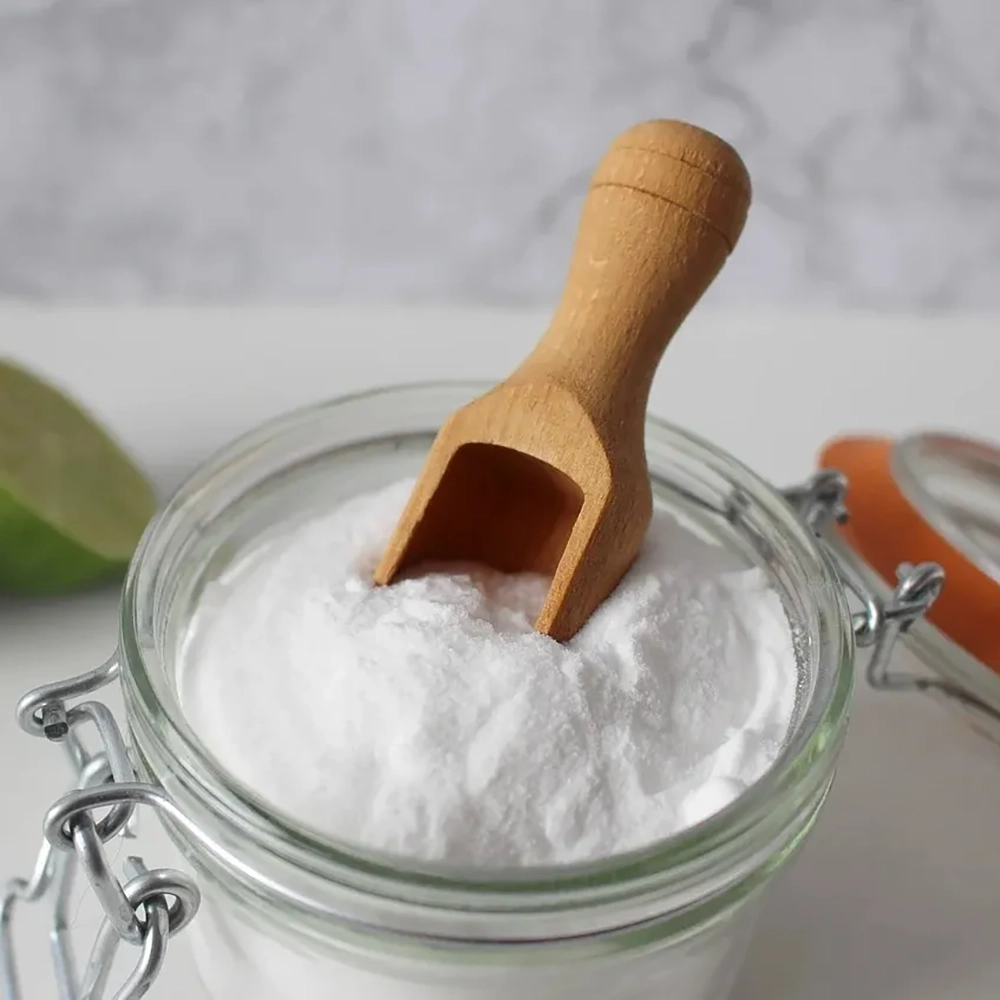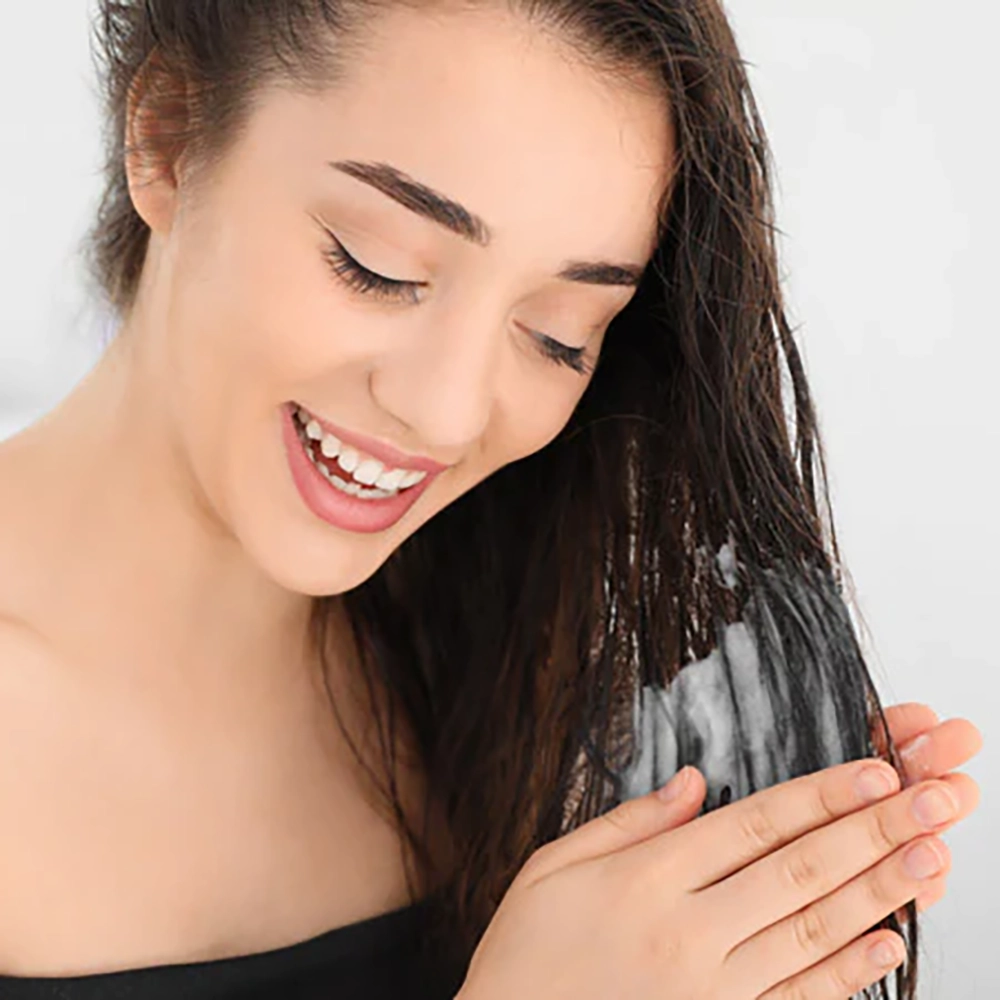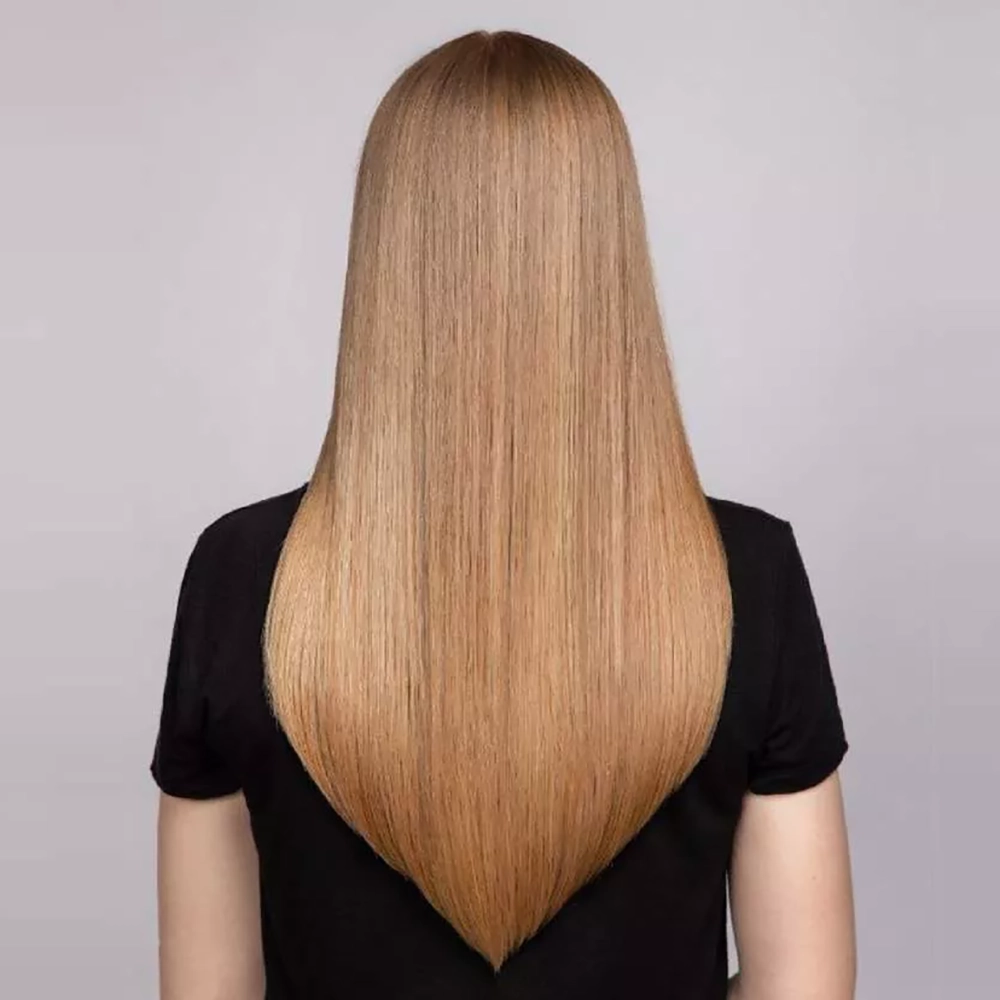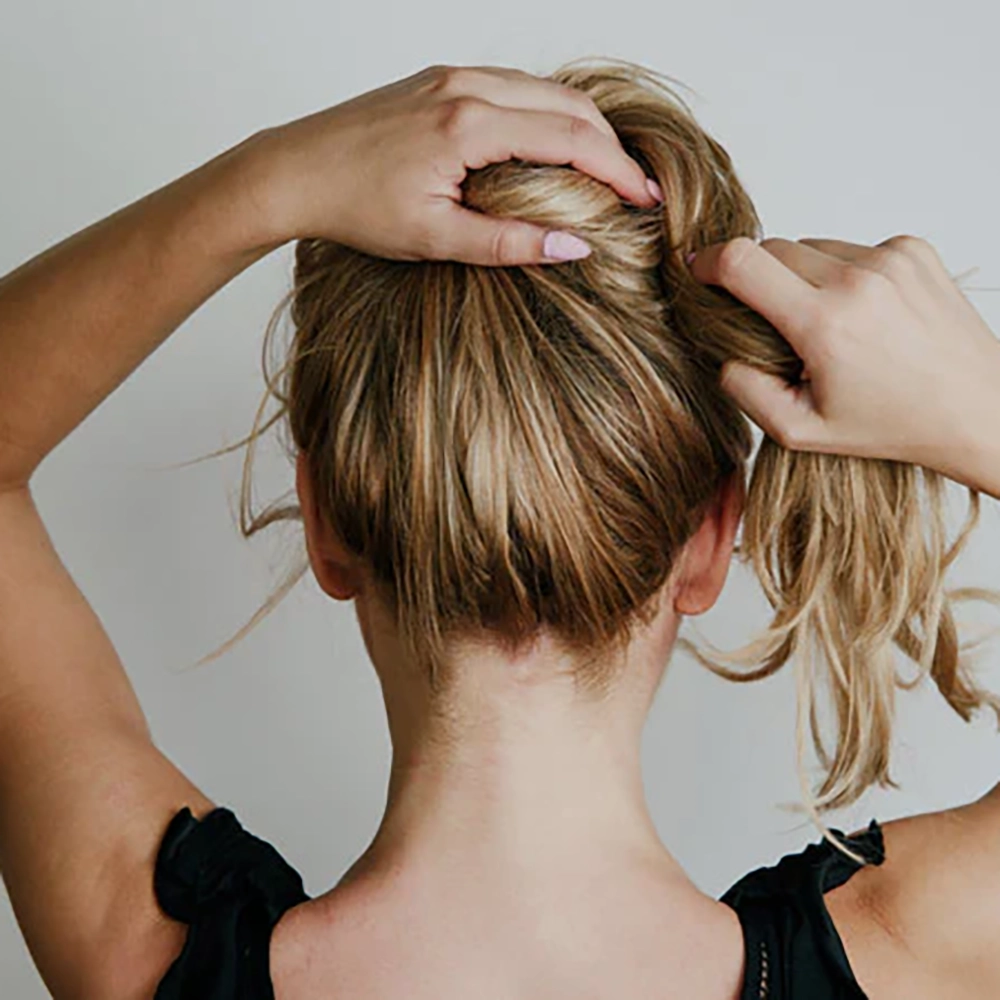What is baking soda?
Baking soda, also known as sodium bicarbonate, is a versatile household ingredient with numerous uses. It is a white crystalline powder that is commonly used in baking as a leavening agent. However, its benefits extend far beyond the kitchen. Baking soda is known for its cleaning and deodorizing properties, making it a popular choice for household cleaning tasks. Additionally, it has several health and beauty benefits, making it a staple in many households. Let’s dive deeper into what baking soda is and how it can be used.
As mentioned, baking soda is primarily used in baking due to its leavening properties. When combined with acidic ingredients like lemon juice or buttermilk, baking soda produces carbon dioxide gas which helps dough rise. This reaction creates light and fluffy baked goods. In addition to its culinary uses, baking soda is a common ingredient in many natural remedies.
Baking soda has a high pH level, which makes it alkaline in nature. This alkalinity helps to neutralize acid and balance pH levels, making it an effective ingredient for cleaning and deodorizing. It can be used to absorb odors in refrigerators, shoes, and carpets. Baking soda can also be used as a gentle abrasive for cleaning surfaces like sinks, countertops, and ovens.
Benefits of using baking soda on hair
Baking soda is a versatile ingredient that can be found in most kitchen pantries. While it is commonly used in baking and cleaning, many people are unaware of its potential benefits for hair care. Utilizing baking soda in your hair care routine can bring about numerous advantages, resulting in healthier and more lustrous locks.
One major benefit of using baking soda on hair is its ability to remove product buildup. Over time, hair can accumulate residue from various hair products such as shampoos, conditioners, and styling gels. This buildup can leave hair looking dull, heavy, and lifeless. Baking soda works as a natural exfoliant, gently removing the accumulated product residue and restoring the hair’s natural shine and bounce.
In addition to removing product buildup, baking soda can also help balance the pH level of the scalp. Our scalp naturally produces sebum, an oily substance that protects and moisturizes the hair. However, excessive sebum production can lead to an imbalance, making the scalp oily and prone to dandruff. The alkaline properties of baking soda help to regulate the pH level of the scalp, reducing oiliness and dandruff, and promoting a healthier scalp environment.
- Baking soda can also act as a natural clarifying agent for those with oily hair. Regular use of baking soda as a shampoo substitute can help control excess oil production, resulting in fresher and less greasy hair.
- Using baking soda on hair can also contribute to increased hair volume. The removal of product buildup and excess oil can make the hair appear fuller and more voluminous.
- Baking soda can be an effective remedy for removing chlorine and mineral deposits from the hair. If you frequently swim in chlorinated pools or live in an area with hard water, using a baking soda rinse can help eliminate the damaging effects of these elements on your hair.
While there are numerous benefits to using baking soda on hair, it is essential to take some precautions to avoid potential side effects. Baking soda should be used in moderation, as excessive use can strip the hair of its natural oils, leading to dryness and damage. It is recommended to dilute baking soda in water or mix it with a conditioner before application. Additionally, it is advisable to perform a patch test before applying baking soda to the entire scalp or hair, as some individuals may be sensitive or allergic to it.
In conclusion, baking soda offers various benefits for hair care. From removing product buildup and balancing scalp pH to clarifying and volumizing the hair, it proves to be a versatile ingredient. However, it is crucial to use baking soda with caution and moderation to avoid potential side effects. If used correctly, baking soda can be a valuable natural alternative for healthier and more vibrant hair.
How to use baking soda for hair care
Baking soda is a versatile product that can be found in most kitchen cabinets. But did you know that it can also be used for hair care? Yes, that’s right! Baking soda has been praised for its ability to cleanse and clarify the hair, leaving it feeling fresh and healthy.
So, how exactly can you use baking soda for hair care? There are several different ways to incorporate baking soda into your hair care routine. One popular method is to create a baking soda paste by mixing equal parts baking soda and water. This paste can then be applied to wet hair, massaged into the scalp, and rinsed out thoroughly. The alkaline nature of baking soda helps to remove buildup and excess oil from the hair, leaving it looking clean and revitalized.
Another way to use baking soda for hair care is by adding it to your regular shampoo. Simply sprinkle a small amount of baking soda into the palm of your hand, mix it with your shampoo, and then apply it to your hair as usual. This can help to enhance the cleansing power of your shampoo and leave your hair feeling fresher for longer.
- In addition to its cleansing properties, baking soda can also be used as a natural hair volumizer. To create a DIY volumizing hair spray, mix one teaspoon of baking soda with one cup of warm water. Pour the mixture into a spray bottle, shake well, and spritz it onto your roots. The baking soda helps to lift the hair at the roots, giving it a fuller and more voluminous appearance.
- It’s important to note that while baking soda can be beneficial for hair care, there are some precautions that should be taken. First and foremost, baking soda should not be used on a daily basis, as it can be drying to the hair and scalp. It’s best to limit its use to once or twice a week to avoid any potential damage.
- Additionally, if you have color-treated hair, it’s important to be cautious when using baking soda. The alkaline nature of baking soda can strip away color molecules, causing your dye to fade more quickly. If you have recently dyed your hair, it’s best to avoid using baking soda until your color has fully set.
| Benefits of using baking soda for hair care: |
|---|
| 1. Cleanses and clarifies: Baking soda effectively removes buildup and excess oil from the hair, leaving it clean and fresh. |
| 2. Enhances cleansing power: Adding baking soda to your regular shampoo can enhance its cleansing abilities, leaving your hair feeling cleaner and healthier. |
| 3. Natural volumizer: Baking soda can give your hair a boost of volume by lifting it at the roots, making it appear fuller and more voluminous. |
In conclusion, baking soda can be a valuable addition to your hair care routine. Its cleansing and clarifying properties make it a great option for removing buildup and excess oil from the hair. However, it’s important to use it in moderation and take precautions, especially if you have color-treated hair. With proper use and care, baking soda can help you achieve fresh, healthy, and voluminous hair.
Precautions when using baking soda on hair
Baking soda is a popular household ingredient with a wide range of uses, including hair care. Many people have turned to baking soda as a natural alternative to commercial hair products, thanks to its ability to remove buildup and clarify the hair. However, it is important to exercise caution when using baking soda on your hair to prevent any potential damage or adverse effects.
First and foremost, it is essential to remember that baking soda is highly alkaline, with a pH level of 9. This alkalinity can disrupt the natural pH balance of the scalp and hair, which can lead to dryness, frizz, and even hair breakage. Therefore, it is crucial to use baking soda in moderation and not as a daily hair care routine. Instead, consider limiting its use to once a month or as needed to avoid overstripping the hair of its natural oils.
When using baking soda on your hair, it is crucial to dilute it properly to minimize its potential harsh effects. Mix 1 to 2 tablespoons of baking soda with 1 cup of warm water until it forms a paste-like consistency. Apply the mixture to your wet hair, focusing on the roots and scalp, and massage it gently. Avoid applying baking soda directly to the ends of your hair, as this can cause dryness. Leave the mixture on for a couple of minutes and rinse thoroughly with warm water.
Additionally, it is recommended to follow up with a conditioning treatment after using baking soda on your hair. The alkaline nature of baking soda can disrupt the hair cuticles, making the hair more prone to tangling and damage. Using a conditioner or natural oils, such as coconut or argan oil, can help restore moisture and nourishment to the hair, reducing any potential dryness caused by baking soda.
In conclusion, while baking soda can effectively remove buildup and clarify the hair, precautions must be taken to avoid potential damage. Remember to use baking soda in moderation, dilute it properly, and avoid applying it directly to the ends of your hair. Don’t forget to follow up with a conditioning treatment to restore moisture and maintain the overall health of your hair. By taking these precautions, you can safely incorporate baking soda into your hair care routine and reap its benefits.
Potential side effects of baking soda on hair
Baking soda is a versatile household ingredient that has gained popularity in the beauty industry, particularly for improving hair health. While many people have experienced positive results from using baking soda on their hair, it is important to be aware of the potential side effects it may have. Although baking soda can deliver great benefits, its high alkaline pH can be damaging if not used correctly. In this article, we will explore the potential side effects of using baking soda on hair and provide precautions to ensure its safe usage.
One of the potential side effects of using baking soda on hair is dryness. Baking soda has strong cleansing properties and can strip away natural oils from the scalp. This can cause the hair to become dry, brittle, and prone to breakage. It is crucial to moisturize the hair adequately after using baking soda to counterbalance its drying effect. Applying a nourishing conditioner or a hydrating hair mask can help restore moisture and prevent dryness.
Another side effect of using baking soda on hair is scalp irritation. The high pH of baking soda disrupts the natural pH balance of the scalp, leading to itching, redness, and inflammation. Individuals with sensitive skin or pre-existing scalp conditions, such as eczema or psoriasis, should use baking soda with caution or avoid it altogether. Performing a patch test on a small area of the scalp before full application is advisable to check for any adverse reactions.
Excessive use of baking soda can also lead to over-stripping of natural oils, resulting in an overproduction of sebum. This can cause the scalp to become greasy and may contribute to the development of dandruff. It is important to use baking soda in moderation and not to rely on it as a daily hair care routine. Alternating its usage with other natural hair care options can help maintain a healthy balance of oils on the scalp.
- To minimize the potential side effects, here are some precautions to follow when using baking soda on hair:
- – Use baking soda as a hair treatment no more than once a week.
- – Dilute baking soda with water or mix it with a gentle shampoo to reduce its alkaline properties.
- – Focus the application on the roots and avoid applying it directly to the ends of the hair.
- – Rinse the hair thoroughly after using baking soda to remove any residue.
- – Follow up with a conditioner or hair mask to replenish moisture.
| Potential Side Effects of Baking Soda on Hair: |
|---|
| – Dryness and brittleness |
| – Scalp irritation |
| – Excessive sebum production |
| – Greasy scalp and dandruff |
While baking soda can be an effective ingredient for hair care, it is essential to be aware of its potential side effects. By using it cautiously, following the suggested precautions, and listening to your hair’s individual needs, you can determine if baking soda is a suitable option for your hair care routine. As with any beauty product, it is always recommended to consult with a dermatologist or trichologist for personalized advice.
Alternative natural hair care options
When it comes to taking care of our hair, there are many options available to choose from. While baking soda is often touted as a natural hair care solution, it may not be suitable for everyone. If you are looking for alternative natural hair care options, there are several effective and chemical-free choices that you can explore. These alternatives can help maintain the health and appearance of your hair without the potential risks associated with baking soda.
One alternative option is apple cider vinegar (ACV). ACV is known for its cleansing properties and can help balance the pH level of your hair and scalp. To use ACV as a hair rinse, simply dilute it with water and apply it to your hair after shampooing. Leave it on for a few minutes and then rinse it out thoroughly. ACV can help remove product buildup, enhance shine, and leave your hair feeling soft and manageable.
Another natural option to consider is aloe vera. Aloe vera gel contains enzymes that promote hair growth and can also help reduce dandruff. You can apply aloe vera gel directly to your scalp and hair, focusing on the roots. Leave it on for about 30 minutes and then rinse it out. Aloe vera can moisturize your hair, soothe an itchy scalp, and add shine to your locks.
Coconut oil is also a popular choice for natural hair care. It is rich in fatty acids that can nourish and moisturize your hair. To use coconut oil, warm it up in your hands and apply it to your hair, focusing on the ends. Leave it on for a few hours or overnight, and then wash it out with shampoo. Coconut oil can help prevent protein loss from your hair, reduce frizz, and add luster to your strands.
In addition to these natural alternatives, there are other options like argan oil, castor oil, and shea butter that can help improve the condition of your hair. By using these alternative natural hair care options, you can avoid the potential side effects and risks that may come with using baking soda. Remember to always patch test any new product or ingredient before applying it to your entire scalp and hair.
In conclusion, if you are looking for alternative natural hair care options, there are plenty to choose from. Apple cider vinegar, aloe vera, coconut oil, and other natural ingredients can provide beneficial effects without the potential risks associated with baking soda. Experiment with different options to find what works best for your hair type and concerns. Always prioritize the health of your hair and scalp, and enjoy the benefits of chemical-free hair care.
Conclusion: Is baking soda good for your hair?
Baking soda is a versatile household ingredient that can be found in most kitchens. It has been praised for its numerous benefits and uses, including its potential for hair care. Many people have been using baking soda as a natural alternative to commercial hair care products, claiming that it can help cleanse, enhance shine, and promote healthy hair. However, before deciding whether or not baking soda is good for your hair, it is important to consider the potential side effects and alternative options available.
When it comes to using baking soda for hair care, there are several precautions that need to be taken into account. Baking soda is alkaline, which means it can disrupt the natural pH balance of your scalp and hair. This can lead to dryness, irritation, and even breakage. It is essential to dilute baking soda with water in the right proportions to minimize these risks. Additionally, baking soda should not be used too frequently, as overuse can strip the hair of its natural oils, leaving it dry and brittle.
While some individuals may experience positive results from using baking soda on their hair, it is important to acknowledge that everyone’s hair is different. What works for one person may not work for another. It is crucial to listen to your hair’s specific needs and adjust your hair care routine accordingly. If you find that baking soda is not suitable for your hair, there are alternative natural options available. For example, using apple cider vinegar as a rinse after shampooing can help balance the hair’s pH and add shine.
In conclusion, the question of whether baking soda is good for your hair is subjective. While it may have some benefits for certain individuals, it is essential to exercise caution and consider the potential side effects. In order to maintain the health and appearance of your hair, it may be best to explore alternative natural hair care options and find what works best for you. Remember, your hair is unique and deserves individualized care to keep it looking its best.
List of Potential Side Effects:
- Dryness
- Irritation
- Breakage
- Stripping of natural oils
Table of Alternative Natural Hair Care Options:
| Alternative | Description |
|---|---|
| Apple Cider Vinegar | A natural rinse that helps balance pH and adds shine |
| Coconut Oil | Deeply moisturizes and conditions hair |
| Aloe Vera | Nourishes and soothes the scalp |




































